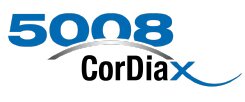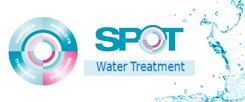FlashMed
| Titolo | Efficacy and safety of a short course of very-high-dose cholecalciferol in hemodialysis1-3 |
| Autore | Haimanot Wasse, Rong Huang, Qi Long, Salman Singapuri, Paolo Raggi, and Vin Tangpricha |
| Referenza | Am J Clin Nutr 2012; 95:522-528 |
| Contenuto |
Background: Vitamin D deficiency is highly prevalent among hemodialysis patients, but little data exist in support of an optimal repletion regimen. Objective: The objective was to ascertain the efficacy of weekly veryhigh-dose cholecalciferol (vitamin D3) in correcting vitamin D insufficiency and deficiency in patients with stage 5D chronic kidney disease. Design: We conducted a prospective, double-blind, randomized controlled pilot study that compared placebo with very high doses of oral cholecalciferol for 3 wk (200,000 IU/wk) in hemodialysis patients. We examined the rate of correction of vitamin D insufficiency or deficiency and the effect of treatment on markers of mineral metabolism and routine laboratory variables. Results: Twenty-seven subjects received placebo, and 25 received cholecalciferol. The majority (94%) of subjects had serum 25-hydroxyvitamin D [25(OH)D] concentrations ,30 ng/mL. Study groups were similar with respect to baseline clinical characteristics, with the exception of hemoglobin concentrations, which were lower in the cholecalciferol-treated group (P , 0.04). At follow-up, 90.5% of subjects treated with cholecalciferol achieved serum 25(OH)D concentrations _30 ng/mL in contrast to 13.6% of the placebo group. There were no significant changes in serum calcium, phosphate, or intact parathyroid hormone during the study. Conclusion: Short-term, high-dose oral cholecalciferol treatment of vitamin D deficiency in hemodialysis patients appears to be effective and with no evidence of toxic effects. This trial was registered at clinicaltrials.
|
| Data | 23.04.2012 |
| Lista completa |
|







